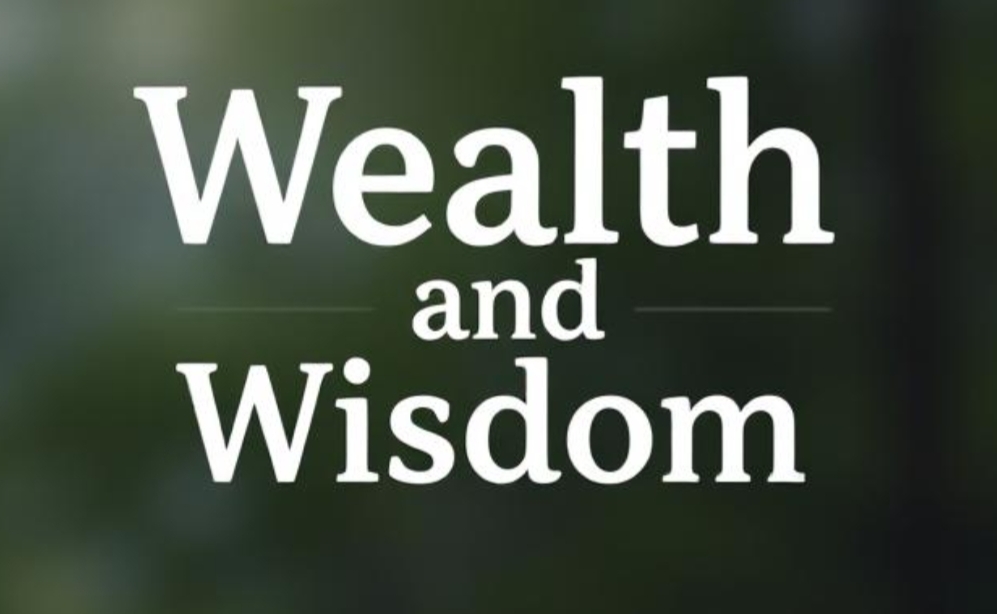
This quote “First get rich, then become a philosopher”by an Indian actor Shah Rukh Khan has been living rent free in my head. In our contemporary society, the dichotomy between wealth accumulation and philosophical inquiry has long been a subject of intrigue. Many notable thinkers, from Aristotle to Nietzsche, have mused about the meaning of life, purpose, and ethics; yet, a striking observation emerges: a considerable number of these sages found their footing in a prosperous framework. This prompts a compelling proposition: “First get rich, then become a philosopher.”
The Foundation of Wealth
Before diving into the philosophical depths, it’s essential to understand the foundational nature of financial security. Wealth acts as a buffer against the unpredictability of life. It provides access to resources, experiences, and knowledge that can significantly inform and enrich one’s worldview. Consider the modern-day magnates who have become philosophical icons—figures like Warren Buffett or Oprah Winfrey, who have leveraged their financial success to explore and advocate profound ideas.
Financial resources can open doors to education, travel, and engagement with a wide array of perspectives. They enable one to step out of the confines of a rigid socio-economic environment, fostering a more nuanced understanding of diverse cultures, ideologies, and human experiences. Thus, accumulating wealth can be seen as an essential developmental stage that empowers individuals to undertake philosophical inquiry from a position of strength rather than survival.
The Freedom to Reflect
Once financial stability is achieved, individuals often find themselves with the precious commodity of time. The rich can afford to be introspective, explore existential questions, and engage with philosophical literature. They can do that without the immediate pressures of making ends meet. This freedom allows for deeper contemplation and, ultimately, a more profound grasp of complex ideas.
Philosophy requires time and mental space—two luxuries that those struggling with economic insecurity may lack. Once the financial burdens are relieved, one can turn their attention inward and outward, pondering life’s great questions. Much like the ancient philosophers who sought truth in the comfort of their well-resourced environments.
Wealth as a Responsibility
The acquisition of wealth often brings with it a responsibility to consider the ethical implications of one’s financial success. This leads to an expanded role for the individual as a philosopher. Ruminating on how one’s wealth affects others can prompt ethical considerations regarding philanthropy, corporate responsibility, and social justice.
Wealth, when viewed through a philosophical lens, is not merely a means to personal pleasure but a tool that can impact communities and societies at large. Thinkers like Peter Singer advocate for the moral obligation of the wealthy to support those in need. By engaging in this discourse, individuals who have first acquired wealth can reach elevated philosophical conclusions—ones that advocate for harmony, equality, and sustainability.
Bridging the Gap
Once financial independence is acquired, the next phase involves bridging the gap between wealth and philosophy. The transition is not always automatic; it requires intentional effort to cultivate a philosophical mindset. This can involve:
- Reading Widely: Engaging with philosophical texts across different cultures and eras can help develop a well-rounded perspective.
- Engaging in Dialogue: Participating in discussions with other thinkers allows for the exchange of ideas and the refining of one’s own philosophical beliefs.
- Reflecting on Personal Experience: Wealth creates unique experiences – both rewarding and challenging. Reflecting on these experiences can yield insights worthy of philosophical exploration.
- Giving Back: Using resources to improve the lives of others can not only increase societal welfare but also foster a deeper understanding of wealth’s role in human interaction.
The journey of “first getting rich, then becoming a philosopher” is not just a pragmatic approach; it’s a profound strategy for living a meaningful life. Wealth, when used wisely, becomes a tool that can lead to profound wisdom. It enables individuals not only to ponder life’s most pressing questions but also to have a tangible impact on the world around them.
In this evolving narrative of wealth and wisdom, the core principle remains—financial success can empower philosophical pursuit, allowing for a richer, fuller understanding of existence. The marriage of the two invites an enduring dialogue about what it means to be human in a world where both material and metaphysical wealth can coexist.
